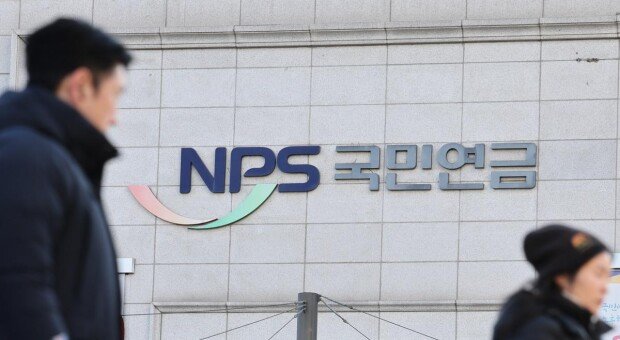Parties agree on 43% pension rate, reform advances
Parties agree on 43% pension rate, reform advances
Posted March. 15, 2025 07:25,
Updated March. 15, 2025 07:25

South Korea’s ruling and opposition parties reached a tentative agreement on Friday to set the national pension replacement rate—the percentage of income retirees receive from their pension—at 43%. The deal comes after the Democratic Party of Korea (DPK), which had insisted on a 44% rate, agreed to accept the government and ruling party’s proposal. With the two sides narrowing their differences, the National Pension Act amendment could be passed as early as February 20 in a plenary session of the National Assembly.
At a leadership meeting in Gwanghwamun, DPK Policy Committee Chair Jin Sung-joon announced, “We will accept the 43% replacement rate proposed by the People Power Party (PPP) and the government.” The two parties had already agreed to raise the contribution rate—the percentage of income paid into the pension system—to 13%, but they had remained at odds over the replacement rate, with the PPP advocating for 43% and the DPK pushing for 44%.
In exchange for its concession, the DPK proposed three additional measures: A legal guarantee of government-backed pension payments, expanded pension credits for childbirth and military service, and increased premium subsidies for low-income earners.
“These issues have been extensively discussed in the Health and Welfare Committee and have received broad support from both parties," Jin said. "The relevant ministries have also largely agreed on them, so it is reasonable to pursue them together DPK lawmaker Park Ju-min, chair of the Health and Welfare Committee, added that the party would expect the bill to pass the plenary session next Thursday.
PPP Policy Committee Chair Kim Sang-hoon quickly responded, saying, “We accept the Democratic Party’s proposal in a positive light.” While confirming the party’s agreement in principle, Kim noted that “some supplementary conditions will need to be discussed with the government in a reasonable manner.” He also indicated that the three conditions proposed by the DPK were not new but were already included in the government’s pension reform bill, suggesting a strong likelihood of reaching a final agreement. Additionally, the PPP announced plans to revisit discussions on a supplementary budget bill in next week’s trilateral talks between the ruling party, opposition parties, and the government.
However, a key sticking point remains: whether to introduce an “automatic adjustment mechanism” that would reduce pension payouts if the system faces financial shortfalls. The ruling party insists on forming a special parliamentary committee on pension reform to discuss the mechanism, but the opposition argues that it is not acceptable at this stage.
In a joint statement, the Ministry of Economy and Finance and the Ministry of Health and Welfare expressed their support for the bipartisan deal, stating, “We respect the agreement reached by the ruling and opposition parties and will work closely with the National Assembly to discuss the conditions proposed by the Democratic Party.” The statement also urged the swift establishment of the pension reform committee, emphasizing, “The automatic adjustment mechanism must be a central issue in discussions and should be implemented as part of the reform.”
이지운 easy@donga.com







